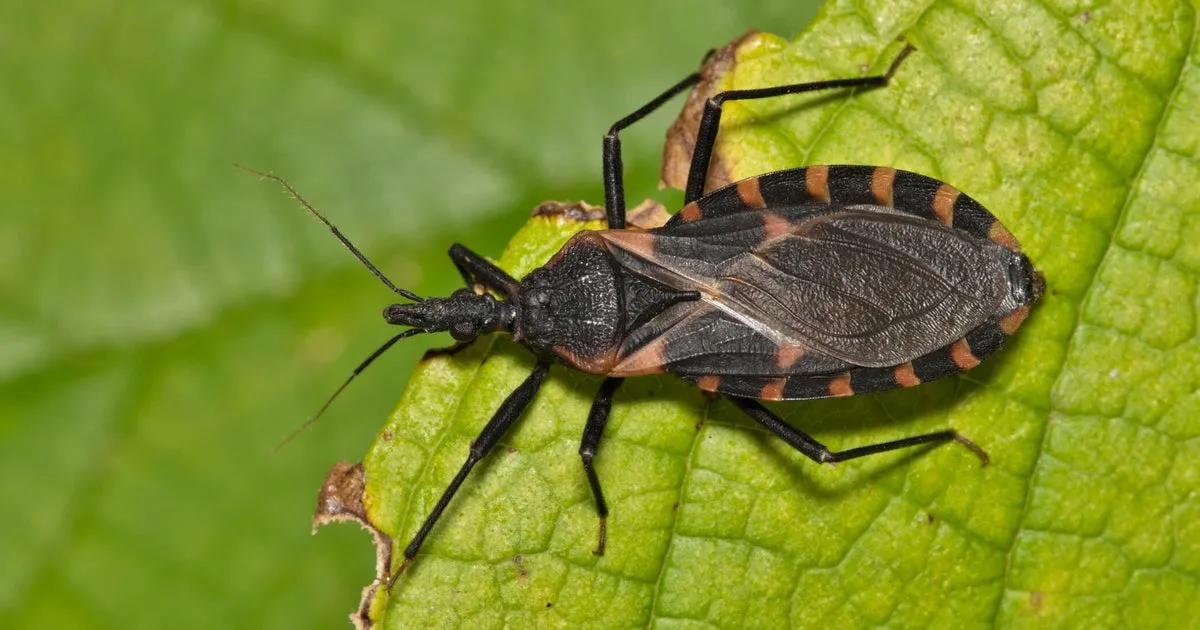
Chagas disease, a potentially fatal condition caused by the Trypanosoma cruzi parasite found in infected triatomine insects, commonly known as kissing bugs, is becoming increasingly recognized as endemic in the United States. This alarming trend is highlighted in a recent report from the Centers for Disease Control and Prevention (CDC), published in the September edition of the CDC's Emerging Infectious Diseases journal. The report indicates that Chagas disease is already endemic in 21 countries across the Americas, and growing evidence suggests that the United States may no longer be considered non-endemic.
According to the CDC report, autochthonous (locally acquired) cases of Chagas disease have been identified in eight states, with Texas reporting the highest number of infections. The report emphasizes that labeling the U.S. as non-endemic contributes to low public awareness and underreporting of the disease. Notably, the kissing bug has been found in 32 states, with confirmed human cases also reported in California, Arizona, Tennessee, Louisiana, Missouri, Mississippi, and Arkansas.
While the report acknowledges that current data is insufficient to definitively prove an increase in the geographic distribution or abundance of kissing bugs, it notes that the bugs are now more frequently encountered by humans. This heightened visibility, along with increased research interest, is raising awareness about the risks associated with these insects. Factors such as their intrusion into homes, bites on humans, and rising canine diagnoses have further contributed to this growing awareness.
Chagas disease is primarily caused by the Trypanosoma cruzi parasites, which are transmitted through the feces of infected kissing bugs. These bugs are notorious for biting humans, often on the face, which is how they earned their nickname. According to UCLA Health, the CDC estimates that approximately 8 million people worldwide and around 280,000 individuals in the United States are infected, often without their knowledge.
Infection can occur when individuals inadvertently scratch or rub bug feces into bite wounds, their eyes, or mouths, allowing the parasites to enter the body. The CDC explains that the kissing bugs excrete the parasite in their droppings after feeding on humans or animals. If these droppings come into contact with broken skin or mucous membranes, it can lead to infection. Importantly, Chagas disease does not spread person-to-person like the common cold, nor does it transmit through casual contact.
Symptoms of Chagas disease can be categorized into two phases: acute and chronic. During the acute phase, which occurs shortly after infection, individuals may experience a distinctive eyelid swelling known as Romaña's sign. This occurs when the T. cruzi parasite enters the eyelid, usually as a result of rubbing bug feces into the eye or a nearby bite area. Other acute symptoms may include:
Fever Fatigue Body aches Headaches Rash Loss of appetite Diarrhea VomitingFollowing the acute phase, some individuals may remain asymptomatic for years, while others may develop chronic complications affecting the heart and digestive system. As noted by infectious disease physician Tom Moore, the disease can severely impact the nerves that supply various organs, leading to significant health issues over time.
Currently, there are no vaccines or medications available to prevent Chagas disease, making it crucial for individuals to take proactive measures to protect themselves. Prevention strategies include:
Staying in well-constructed accommodations when traveling Using insecticides and bug repellents Wearing protective clothing that covers the skin Avoiding raw fruits and vegetables, as oral transmission can occur through contaminated foodIn addition, experts recommend that homeowners take steps to minimize the risk of kissing bug infestations by sealing windows and doors, as well as removing trash, wood piles, and rocks from around their homes.
As the awareness of Chagas disease continues to grow in the U.S., understanding the risks associated with kissing bugs and taking appropriate preventive measures is more important than ever.